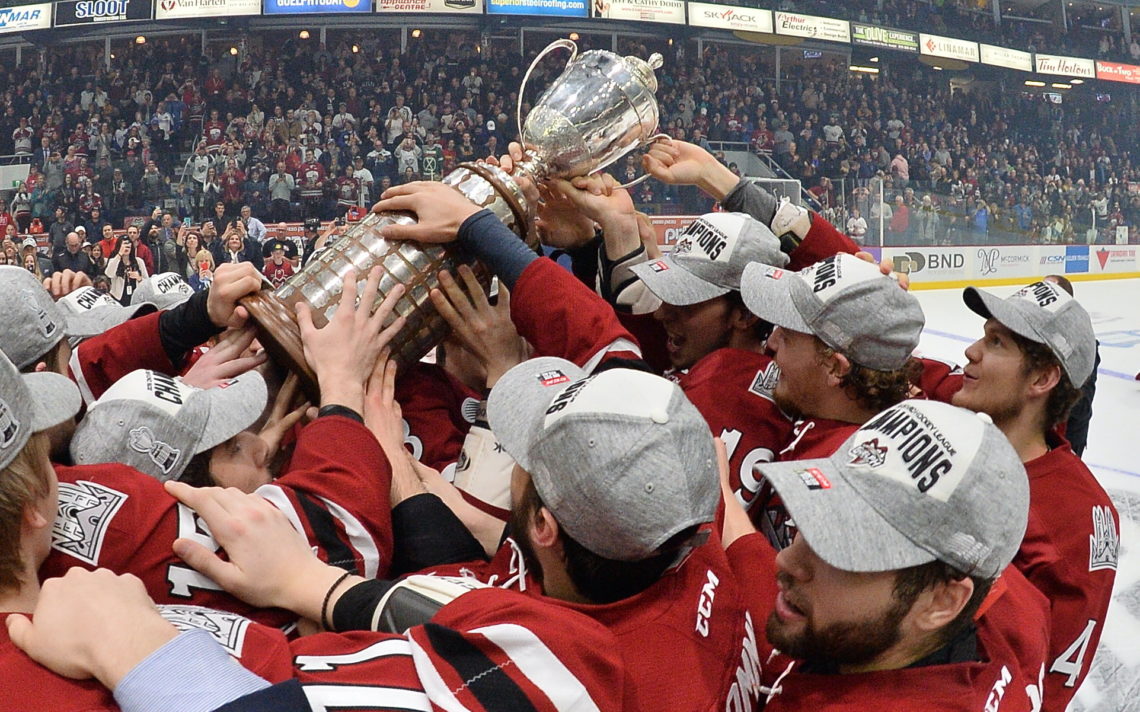
CHL settles lawsuit
Simon Black had a personal interest when the Canadian Hockey League recently settled a six-year battle with its players.
Black, an assistant professor of labour studies at Brock University, played two years of soccer at the NCAA (National Collegiate Athletic Association) level with the University of Buffalo and was curious with the settlement which will require the CHL to pay $30 million to former players by October 2020.
“I always had interest in the parallels between NCAA and major junior hockey,” said Black, a Toronto native who joined Brock in 2014. “I always thought it ironic NCAA considered the CHL to be professional.
“The CHL always says very loudly, to whoever would listen, these players are amateurs. They are student-athletes. I have an interest in it from that perspective.”
Players who suit up for CHL teams lose their NCAA eligibility. However, players who begin their careers in the NCAA are eligible to play in the CHL.
The three lawsuits, filed in 2014, claimed that players in the CHL were employees working more than 60 hours per week and not student-athletes and should be paid minimum wage. The claims took aim at 52 of the 60 CHL franchises based in Canada.
Plaintiff Sam Berg will receive $20,000 while fellow plaintiffs Travis McEvoy, Kyle O’Connor, Thomas Gobeil and Lukas Walter each get $10,000. The rest of the $30 million, after legal fees, will be divvied up among the more than 4,000 players in the lawsuit that file for a claim.
Players that have signed an NHL contract cannot collect any money.
Berg, a 23-year-old Beamsville native and son of former National Hockey League player Bill Berg, played eight scoreless games for the Niagara IceDogs in the 2013/14 season before being demoted to junior B.
Berg, who did not respond for a request for an interview, did issue a statement at the time of the settlement.
“We launched these class actions to fight for the rights of the players and to make a positive change, and we’re proud of what these lawsuits and this settlement have achieved,” Berg and Walter said in a joint statement.
The deal was agreed to earlier this year after both sides met with a mediator.
“This settlement does not mean that we agree with the plaintiffs,” an open letter from the CHL stated. “It means that we wanted to end the lawsuits so we could continue to focus on being the best development league in hockey.”
The first payment of $15 million is due by June 10 with $7.5 million owed by Sept. 10 and Oct. 10.
“There was financial incentive for them to not drag this out any longer,” Black said. “They have insurance to cover half the settlement.”
The remaining $15 million will be split amongst the clubs.
Black began by researching the topic from 2012 when there was a failed attempt to form a player’s association.
“I thought it was a really vulnerable group of athletes, workers really, and there wasn’t really anyone standing up to protect their interests,” Black said. “I started research on both the union effort and how the league was dealing with the class action lawsuit since the failed attempts to form player associations.”
Black feels it unfair players are exempt from coverage under the Employment Standards Act.
“These players are not covered under any province or any state where there is a CHL team,” he said. “It leaves them very vulnerable.”
Black says further action on behalf of the players must be taken by the labour movement as a whole.
“The labour movement, including players’ unions like the NHLPA, must step in to protect these young athletes by pressing provincial governments to reverse these exemptions,” he said. “While this settlement does bring some justice to former players, current players will continue to be the only workers at the arena — from the coaches on down to the hot dog sellers — that are not paid at least the minimum wage.”
The CHL does not pay its players a salary, however they provide a myriad of other benefits.
Players are reimbursed $470 per month which increases to $900 per month for over-agers.
All schooling is paid for while with the club, includes any and all high school costs, and post secondary courses taken while with the team.
As well, players are eligible for post-secondary education packages, that range depending on the player, but the minimum is one year of books and tuition paid for one game/year played. Some players can get up to four years paid for by playing one game. Traditionally first-round picks will get a full-ride package consisting of cost of room and board, books, tuition and compulsory fees.
All equipment is paid for, including sticks, skates and as many items as needed on a yearly basis as well as transfer/registration fees.
Players are also reimbursed $500 for disability insurance and $1,000 for summer training costs as well as any and all travel costs (to and from camp, Christmas break, etc). Teams also provide tickets go all home and away games for family. Billets, room and board and all meals are covered as well.
IceDogs president Bill Burke said all inquiries for comments are to be directed to Branch.
BPSN and the COVID-19 pandemic
Like all small businesses dealing with the COVID-19 pandemic, BPSN is not sure what the business landscape will look like when things return to normal. Our website is financed primarily through advertising revenues and partnership agreements with many local sports and educational organizations in Niagara. Our goal is to continue providing our readers with the extensive local sports coverage you have come to expect from our site. Since our inception, we have written more than 2,800 stories on our local athletes and teams. Many of our readers have given us one-time donations or send us monthly contributions to help offset our costs. We would be eternally grateful if others would consider doing the same by using the Support Us button located on the right-hand side of our home page below the mosaic.
Thank you for your continued support.
Bill and Bernie.

























